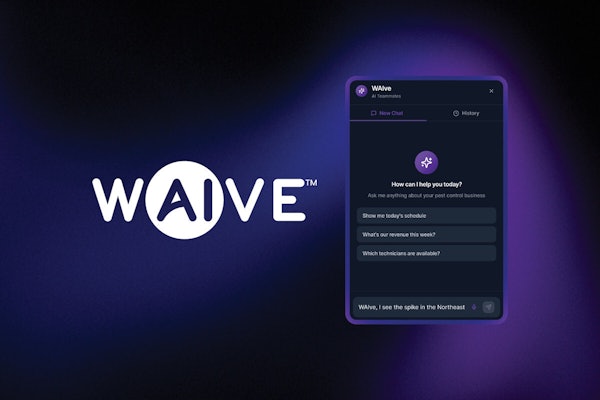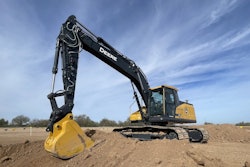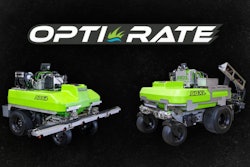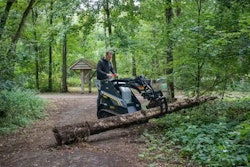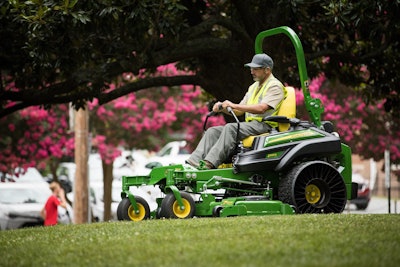 Photo: John Deere
Photo: John DeereManufacturers are always looking for ways to improve equipment by incorporating new technologies and adopting current innovations. However, more are turning toward a nearly 30-year-old system called Electronic Fuel Injection (EFI).
The EFI system is growing in popularity on smaller engine solutions due to its enhanced fuel economy and reduced emissions, and EFI engines are appearing on more professional-grade mowers.
So, why EFI? While a carburetor approximates the fuel to air ratio for each cylinder, EFI engines use electronics to inject a more precise amount of fuel and air into the cylinder. Sensors are present which calculate and constantly adjust this mixture based on engine load conditions.
 Photo: John Deere
Photo: John DeereThis type of controlled capability provides optimum power output, increased fuel efficiency and lower emissions. This fuel delivery system can be found on most larger modern vehicle engines. By integrating EFI machines into their fleet, owners can save money on fuel, and operators can reduce downtime without sacrificing performance.
There are multiple benefits for commercial landscape contractors to convert to a mower with an EFI engine. Not only do these engines offer better fuel economy by up to 25 percent more than a typical carbureted engine of similar power, but they also promote cleaner emissions during use.
The EFI technology allows engines to make continuous adjustments in response to changes in the operating conditions — such as external temperature and altitude. During operation, the fuel is always being used in the most efficient way regardless of the conditions.
EFI engines, while more complex to service, offer internal diagnostic readings that can accurately pinpoint an area of needed maintenance. EFI technology makes system diagnostics a breeze by running regular reports to track machine condition. This speeds up the overall service process, enabling operators to get back to work sooner. Considering there is no choke on the engine, starting up the engine is easier than non-EFI engines, even in the summer heat or on a cold fall morning.
While there are many upsides to switching to an EFI engine, there are various things to consider beforehand. One of the biggest concerns that contractors have when switching to an EFI machine is that upfront costs may be higher than similar powered non-EFI models. When considering the long-term benefits, we see that operations can potentially save around 20 percent on fuel costs annually. Under ideal operating conditions, the initial purchase price difference between a carbureted and EFI machine can be offset through the associated savings on fuel.
EFI engines are more complex than carbureted engines. This fact has raised some concerns for landscape contractors, especially surrounding the cost of repairs and the frequency of routine maintenance. EFI engines contain more electrical components and replacing or repairing these may be more difficult than cleaning or replacing a carburetor.
However, a specifically trained technician should be able to diagnose and troubleshoot issues using appropriate diagnostic tools and techniques. While the cost of a repair may be higher than a non-EFI engine, incorporated diagnostics can help reduce the need for service and repairs, saving money over time. Ultimately, the business case for switching to EFI engine solutions must make sense for the landscape contractor and his or her fleet of equipment.
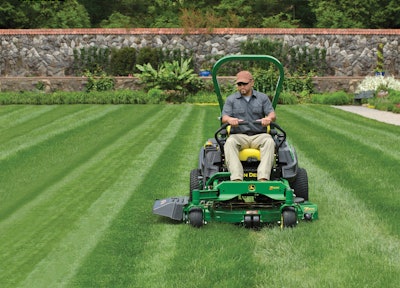 Photo: John Deere
Photo: John DeereWhile EFI engines may be more challenging to service due to internal electrical systems, switching to an EFI machine offers many benefits to the operator. Internal diagnostic systems help by presenting onboard codes that help pinpoint an issue within a piece of equipment.
John Deere offers a Service ADVISOR diagnostic tool that can be plugged into a machine to show a technician which areas of the machine need to be tended to. This feature helps expedite the regular maintenance process which reduces operator downtime.
The associated benefits of EFI machines attributed to fuel savings, reduced emissions, and ease of use can be multiplied over a fleet of machines. Something as simple as not having a separate choke lever makes the start-up procedure easier, which gets operators to work faster.
John Deere offers four EFI models in its Z900 commercial ZTrak portfolio and two models in its QuikTrak stand-on mower lineup. This offering could potentially grow as professional landscape contractors continue to see the increased benefits of EFI engine solutions.
EDITOR’S NOTE: This article was written by Ruben Peña. Peña is the product marketing manager of commercial mowing for John Deere.





